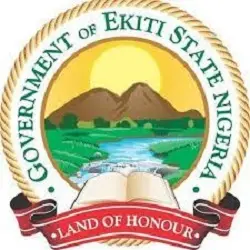The Ekiti State Government has taken delivery of 110 solar-powered pumps and related accessories to facilitate the construction of an additional 110 Water, Sanitation and Hygiene (WASH) facilities across the state’s 16 Local Government Areas (LGAs) and 22 Local Council Development Areas (LCDAs).
The initiative, aimed at ensuring adequate access to potable water, sanitation, and hygiene services, is part of the state’s broader commitment to improving public health and quality of life for residents.
Speaking in Ado Ekiti, the State Commissioner for Infrastructure and Public Utilities, Mobolaji Aluko, said the new WASH projects are being executed under the World Bank-supported “Sustainable Urban and Rural Water Supply, Sanitation and Hygiene (SURWASH)” Program.
The program is designed to expand access to water and sanitation services, especially in underserved communities.
Prof. Aluko explained that the decision to purchase the solar pumps in bulk was a strategic move to reduce costs, ensure quality standardization, and facilitate efficient post-installation maintenance.
“The broader project is our SURWASH program, and part of what we’ve been doing over the past two years is to ensure access to water and sanitation in both urban and rural areas,” he said.
He revealed that the state has so far rehabilitated 121 WASH facilities and constructed 64 solar-powered boreholes.
The current phase will see 110 WASH facilities—anchored with solar-powered boreholes—installed in 55 schools and 55 health centres. Each LGA and LCDA is expected to receive two units, with additional units allocated to Ado LGA.
On long-term sustainability, Aluko emphasized the government’s focus on resolving power supply issues for the state’s dams. He said efforts are underway to provide dedicated power sources—solar, gas, or small hydro power—for the dams to enable efficient water pumping for both public use and agricultural irrigation.
“Residential or commercial electricity cannot support the heavy pumping needs of dams. That’s why we are considering dedicated and independent power sources to meet these demands,” he explained.
Ekiti currently has four major dams—Ero, Egbe, Ureje, and Itapaji—along with a fifth multipurpose dam at Ogbese, which is owned by the Federal Government and undergoing rehabilitation.
Prof. Aluko reaffirmed the state government’s commitment to providing essential services to residents, while urging communities to take ownership of public utilities in their areas.
He stressed that local engagement, accountability, and community-driven maintenance are key to sustaining these facilities and improving overall service delivery.
















